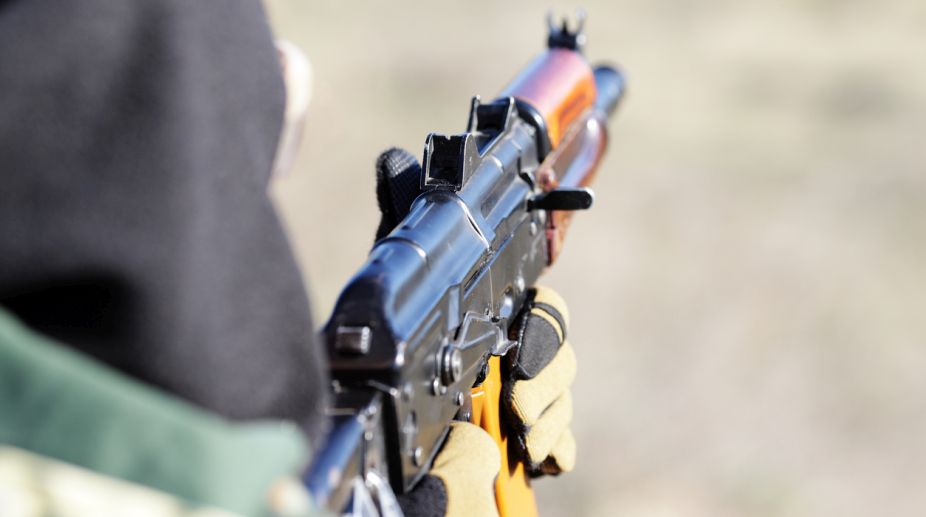Srinagar: Militants in Jammu and Kashmir have been facing a shortage of weapons despite Pakistan’s attempts to provide arms to various terrorist organisations active in the valley, Director General of Police (Jammu and Kashmir) Dilbag Singh said on completion of one year of the abrogation of Article 370 in the former state. The situation is that if Pakistan manages to recruit militants, it is not able to provide them with weapons, Singh told IANS here.
The DGP said that Pakistan has failed to facilitate weapons for the militants despite adopting various methods like the use of drones and infiltration of militants, with each carrying more than three firearms. Citing incidents between January to July this year, the officer said the security forces foiled several Pakistani attempts when it tried to sneak weapons into Jammu and Kashmir through drones in various districts bordering the Line of Control (LoC) and via Punjab by seizing caches of arms.
“There is a weapons shortage in Jammu and Kashmir. If new recruits are made by terrorist groups they cannot provide them weapons. The J&K Police recently seized one of the dumps in a narco terrorism case. We seized around 25-30 weapons that were sent to Kupwara. These weapons were seized along with a big haul of narcotics.” Pakistan tried to send weapons through drones but those were also seized, he said, adding that firearms were smuggled here by Pakistan through Punjab in two or three cases.
In this year’s Nagrota encounter, Singh said, three militants infiltrated into Jammu and Kashmir carrying nine weapons. “Pakistan’s tactics to send weapons through this method was also foiled by us. Pakistan’s every attempt to sneak in weapons has been foiled so far.”
The DGP said Pakistan’s attempt to send weapons into Indian territory by using drones is a matter of serious concern. “We will have to work on that aspect”.
Singh said Pakistan tried to send weapons through drones in Samba and Hira Nagar in Kathua district as well as Jammu’s Khour sector. “They also tried to send weapons to Rajouri and Poonch districts but they could not succeed.”
“They (Pakistan-based handlers) are trying to send weapons from different places but they could not succeed in their attempts.” Despite these attempts by Pakistan, our overall plan is to keep our operations neat and clean and we want that the public should not face any kind of problem, the DGP added.
This behaviour of the police force in Jammu and Kashmir has “changed the minds of the people here. If it had not happened, you would have seen stones everywhere yesterday (August 5 anniversary of the abrogation of Article 370),” Singh said. Since the July 2016 killing of militant leader Burhan Wani, there have been around 2,600 law and order incidents, he added.
Burhan Wani, 22, was killed in an anti-insurgency operation in Jammu and Kashmir on July 8, 2016, leading to violence in the Valley which claimed many lives and led to an over one month long curfew.
Post abrogation, the DGP said, there have been around 1,100 law and order incidents that include 550 incidents of pasting of posters and many linked to fixing of flags. Of the total 1,100 incidents, there were only 196 violent incidents this year and none of them were serious in nature.
“No civilian was killed by bullets post abrogation of Article 370.”
Claiming success in the anti-militancy operations in the last two years, the DGP said it has happened as the security forces have targeted the terrorist support structure — the Jamaat-e-Islami (JK), Hurriyat and their members and the Over Ground Workers (OGWs).
IANS
